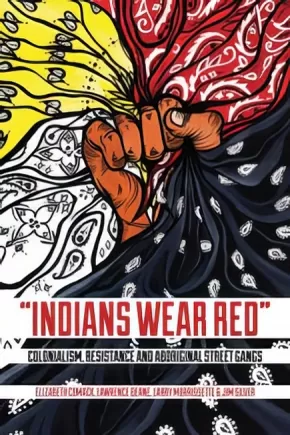Larry Morrissette
Larry Gambone grew up in logging towns on Vancouver Island, British Columbia, where he was active in the anti-nuclear weapons ‘Ban-the-Bomb’ movement. He attended Simon Fraser University between 1967-70 and was involved in the campus New Left. He formed a campus IWW branch, and later joined the Vancouver Yippies. Gambone briefly lived on a commune in the Kootenays in the 1970’s, helped form the anarchist paper Open Road and became involved in the Surrealist Movement. In the 1980’s he began a serious study of working class movements and the autodidact thinkers that influenced them, which lead to an interest in the writings of Joseph Dietzgen. Gambone remains active in his community and continues to study and write about anarchism and other social movements.
Books (1)
Synopsis:
With the advent of Aboriginal street gangs such as Indian Posse, Manitoba Warriors, and Native Syndicate, Winnipeg garnered a reputation as the “gang capital of Canada.” Yet beyond the stereotypes of outsiders, little is known about these street gangs and the factors and conditions that have produced them. “Indians Wear Red” locates Aboriginal street gangs in the context of the racialized poverty that has become entrenched in the colonized space of Winnipeg’s North End. Drawing upon extensive interviews with Aboriginal street gang members as well as with Aboriginal women and elders, the authors develop an understanding from “inside” the inner city and through the voices of Aboriginal people — especially street gang members themselves.
While economic restructuring and neo-liberal state responses can account for the global proliferation of street gangs, the authors argue that colonialism is a crucial factor in the Canadian context, particularly in western Canadian urban centres. Young Aboriginal people have resisted their social and economic exclusion by acting collectively as “Indians.” But just as colonialism is destructive, so too are street gang activities, including the illegal trade in drugs. Solutions lie not in “quick fixes” or “getting tough on crime” but in decolonization: re-connecting Aboriginal people with their cultures and building communities in which they can safely live and work.






